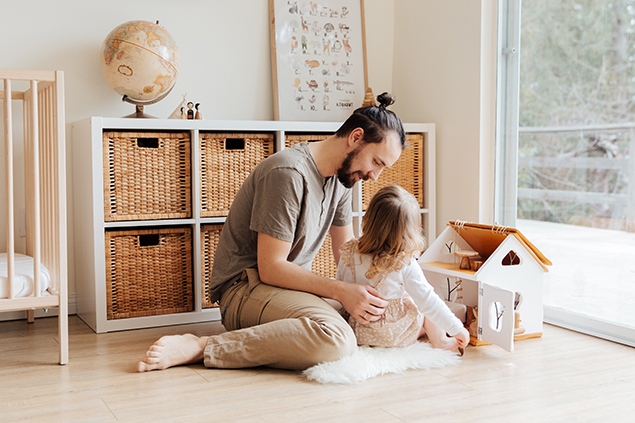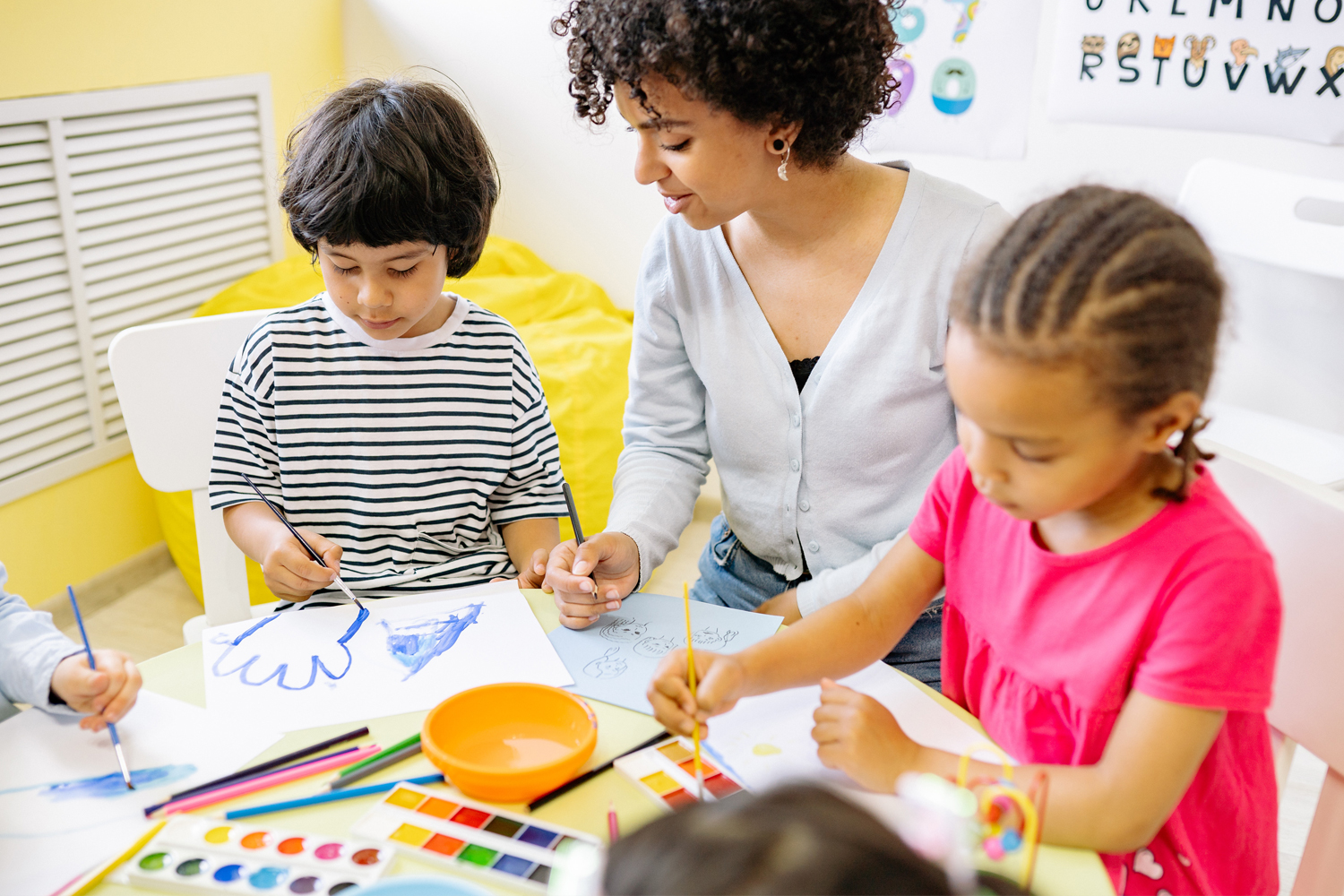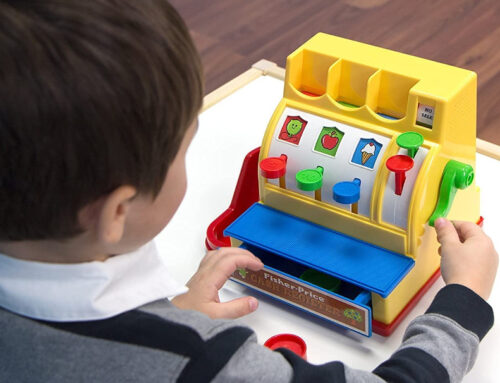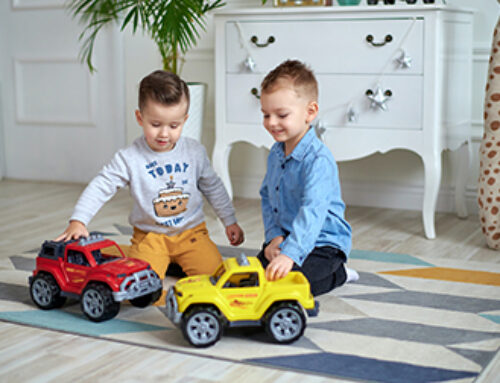Schools are closing all over the country. Illinois is on their 3rd “Shelter at Home” day and I am sure as each day passes concerns around helping your child during this difficult time grows. As a parent of a child with special needs, I’m sure those concerns feel enormous.
The fear of the unknown is great right now and children with ASD thrive on routine and knowing what to expect. With so many unknowns and factors out of our control, please take some peace in the idea that YOU get to choose how you are going to show up for your child over the next several weeks. We didn’t choose this global pandemic. You didn’t choose for your child’s clinic to close. You didn’t choose for your child’s therapy services to change. But, you DO get to choose how to show up. I encourage you to choose to stay positive and make the most of this time. Choose to celebrate small successes—your kiddo ate mac and cheese for breakfast? Hey, that’s great! Better than no breakfast! Take things day-by-day and remember you are the expert in your child’s life. You’ve got this!
With that being said, lets take a look at 5 ways to help your child through clinic closures:

- Remember Behavior is Communication: Your kiddo’s world has been completely turned upside down and that is very scary for them. There are a lot of unanswerable questions and they’re trying to acclimate to a new schedule with new expectations and norms. That is a lot for any child to take on but is even more challenging for a child with ASD who may be struggling with anxiety. You may very well see an increase in maladaptive behaviors or increased meltdowns. Please remember that those behaviors are communication. Your child isn’t trying to make things hard on you; they are misbehaving because the world is overwhelming them, they’re scared and they can’t find an alternate way to communicate that. Offer your child extra snuggles. Engage them in their favorite games. And most importantly, when your child is struggling and communicating that through behaviors, remember that what they need now is love and support. Your love and support is the constant in their world that they need.
- Focus on Connection: Take this extra time at home with your child to really connect. Meet your kiddos where they are and try to connect in a way that is meaningful and enjoyable to them.
- Make time for yourself: Parenting is hard. Parenting is stressful, messy, and confusing. Your child doesn’t need a perfect parent. They need a parent that is strong and healthy, both mentally and physically. It can be so easy to throw self-care out the window at a time like this. You may think you need to put ALL your energy into making sure your child is thriving. But your child needs you to be healthy. That means trying your best to eat a balanced diet, get some sleep, and stay active. Take advantage of family counseling. You deserve that time and space to process your thoughts and feelings. Processing the negative emotions will help prevent them from coming out in more destructive negative ways. Self-care is also so much more. It also means taking a break when you need one. That means letting your kindergartner watch an extra episode of Paw Patrol so you can have a few extra minutes to yourself to drink your coffee before having to re-heat it in the microwave (we’ve all been there ;)). That may mean having your spouse tag in so you can call a friend to vent or scream into a pillow. That may mean tears and ice cream. I encourage all parents to prioritize self-care during this stressful time. Self-care is showing up for our kids.
- Build Routines Together: Ever since schools started to close there have been a lot of “routine” ideas floating around on social media. On paper those look great! Wouldn’t it be wonderful if all kids ate a well-balanced breakfast, transitioned smoothly from breakfast to reading time, to movement breaks, and craft time? All while never requesting the tablet or throwing a tantrum because they couldn’t eat their kinetic sand! The reality is, those routines I’ve seen plastered on my social media feeds are nice, and organized, and pretty, but life is not. Now, I don’t mean to say you shouldn’t try to incorporate routine and structure into your days — You absolutely should! But, make a routine that works for your family. Try spending a few days observing what your child naturally does. When do they get tired? When are they bored? Hungry? Energetic? Use the knowledge and create a routine that best fits your family’s natural dynamic. And yes, that can include screen time and time for parents to pass the torch to someone else and take a break!
- Plan for Sensory Needs: Sensory needs are huge for kids with ASD. With clinics being closed and therapy being virtual, it is important to think about how to meet your child’s sensory need on a daily basis. Take time to learn about the different sensory systems and what your child’s system needs. Reach out to your child’s therapist and ask them for advice, tips, and strategies! We want to support you guys in the home! It does indeed take a village!

Blue Bird Day fosters socialization, sensory regulation, and pre-academic learning in children ages 2-7 years in therapeutic rotations that simulate preschool and kindergarten settings. Our compassionate therapists practice a relationship-based and family-centered approach, provide parent training, and collaborate on goals and individualized intensive treatment plans for your child.
We believe in a collaborative and multi-disciplinary team approach to therapy. A team of occupational therapists, speech-language pathologists, dietitians, developmental therapists, behavioral therapists, physical therapists, and therapeutic assistants are created for each child to ensure child and family are fully supported and the best possible results are achieved.
Options for individualized, group and virtual therapy sessions are available as well.
Want to learn more or you have a specific question? Feel free to connect with us here!



